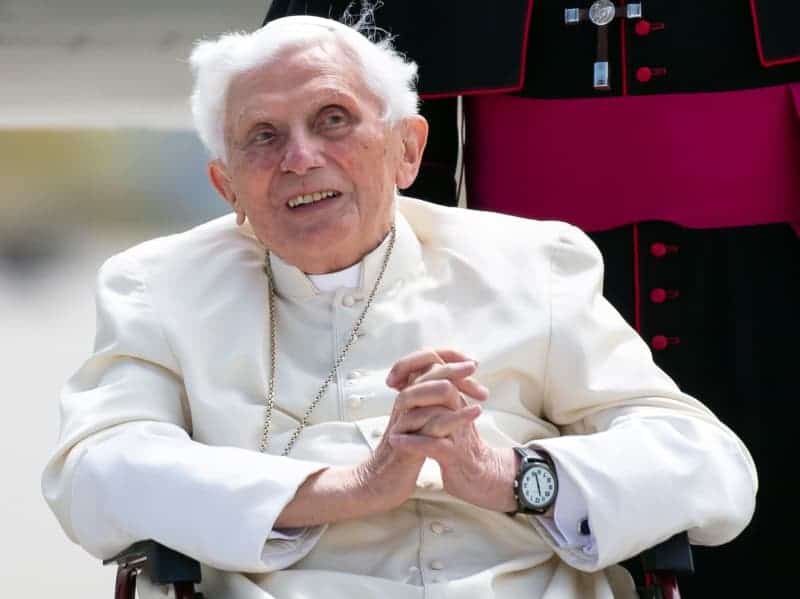DPA

Pope Emeritus Benedict XVI on Tuesday asked victims of sexual abuse in the Catholic Church for forgiveness but rejected allegations that he was involved in any cover-up.
The retired pontiff was responding to an independent report, released on January 20, which chronicles decades of alleged abuse and misconduct in the archdiocese of Munich, which he led as Cardinal Joseph Ratzinger from 1977 and 1982.
“I have borne great responsibility in the Catholic Church. My pain is all the greater for the misdemeanours and errors that occurred during my terms of office and in the places concerned,” he said in a statement released by the Vatican.
In the letter, Benedict expressed his “deep shame” and “great pain,” as well as his “sincere request for apology to all victims of sexual abuse.”
Benedict has faced severe criticism after the report detailed accusations of misconduct against him in four cases. Experts from the law firm Westpfahl Spilker Wastl (WSW) believe that Ratzinger reassigned priests who had abused children to other areas during his time as archbishop of Munich and Freising.
These accusations were categorically denied by Ratzinger’s lawyers and advisers in a “fact check” also published on Tuesday.
“The expert report contains no evidence to support an allegation of misconduct or assistance in a cover-up,” it says. “As archbishop, Cardinal Ratzinger was not involved in any cover-up of acts of abuse.”
Benedict also commented himself on accusations that he had lied about his participation in a meeting concerning the transfer of a priest from Essen in North Rhine Westphalia to Bavaria. This priest is alleged to have abused several other children in two Upper Bavarian parishes.
The false statement – that he had not been present at the meeting in question – was based on a misunderstanding, Benedict said. This occurred while his statement on the expert report was being written up with the help of “a small group of friends.”
“In the enormous work of those days – the drafting of the statement – an oversight occurred concerning the question of my participation in the ordinariate meeting of January 15, 1980,” he wrote, adding that the mistake was “not intentional” – and “I hope, also excusable.”
“The fact that the oversight was exploited to cast doubt on my truthfulness, indeed to portray me as a liar, has affected me deeply,” the 94-year-old said.
Participation in the meeting does not prove that Benedict knew about earlier acts of abuse committed by the Essen priest, his lawyers stressed.
The files show “that it was not discussed at the meeting in question that the priest had committed sexual abuse,” they noted.
According to the WSW law firm’s report, at least 497 children and young people were sexually abused by priests, deacons or other church employees in the archdiocese of Munich and Freising between 1945 and 2019.
The experts counted at least 235 alleged perpetrators – including 173 priests and 9 deacons – while noting that a large number of cases would likely have gone unreported.
In his letter, Ratzinger asks the faithful to pray for him.
“More and more I understand the revulsion and fear that overtook Christ on the Mount of Olives when he saw all the terrible things that he was now to overcome from within,” he wrote. “That at the same time the disciples were able to sleep is, unfortunately, the situation that exists anew today and in which I too feel addressed.”
In a short statement, Cardinal Reinhard Marx, the current archbishop of Munich, welcomed Benedict’s letter while stressing how seriously his diocese was taking the independent experts’ findings.
“I emphasize once again that the archdiocese and I as archbishop take very seriously the report, which particularly in terms of the management levels deals with personal and institutional responsibility,” Marx said, vowing to “take up the recommendations together with the victims’ advisory council and the Independent Reappraisal Commission.”



